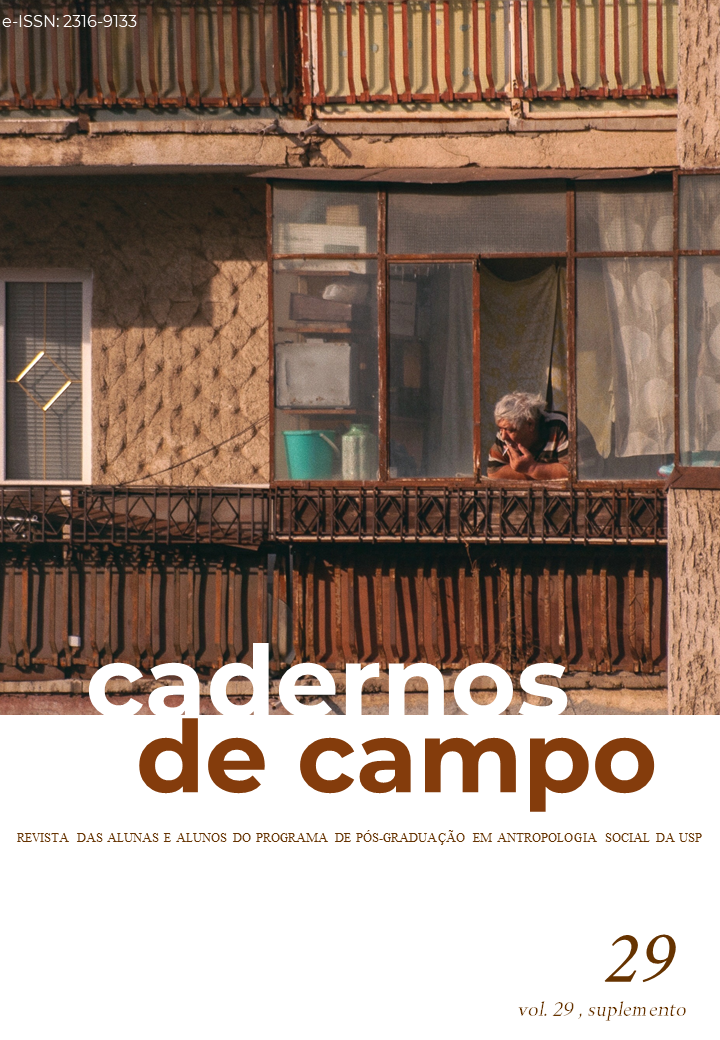Si salimos nos mata el virus, si nos quedamos nos mata el hambre
ethnography of coronavirus in Guayaquil
DOI:
https://doi.org/10.11606/issn.2316-9133.v29isuplp85-93Keywords:
covid-19, Guauaqui, neoliberalism, healthAbstract
On February 29, 2020, the government of Ecuador announced the first case of coronavirus infectionin a patient from the city of Guayaquil. A month later, more than 1,859 cases and 57 deaths were reported. As of May 29, the number of infected was around 15,000 and more than 2,000 deaths. Between March and April, according to data from the Civil Registry, there are more than 13,000 registered dead, evidencing an underreportingthat could place it as the city in Latin America with the highest number of infections and deaths per capita. Ecuador has resumed neoliberal policies that have systematically decreased the State's response capacity and priorities in the face of health crises and pandemics, showing how diseases related to poverty infect and kill the most deprived. This article presents an ethnographic account in the time of the pandemic, outlines the relationships between neoliberal policies, social inequality and disease, narrates the spaces where not only a virus is the one that kills, but stigma and social exclusion
Downloads
References
Badillo, Ana y Fosher. Andrew. 2020. Ecuador, COVID-19 and the IMF: how austerity exacerbated the crisis. Extraído de: ISS Blog on Global developmen and social Justice, www.issblog.nl.
CEPAL. 2020. America Latina y el Caribe ante la pandemia del COVID-19. Efectos económicos y sociales. Extraido de : https://repositorio.cepal.org/bitstream/handle/11362/45337/4/S2000264_es.pdf
Faiola, Anthony. 2020. Bodies lie in the streets of Guayaquil, Ecuador, emerging epicenter of the coronavirus in Latin America. Extraído de: www.washingtonpost.com/people/anthony-faiola/
Fernández, Nora. 2006. Migrantes kichwas y Regeneración Urbana en Guayaquil. En publicación: Informe final del concurso: Migraciones y modelos de desarrollo en América Latina y el Caribe. Programa Regional de Becas CLACSO, Buenos Aires: Argentina. Extraído de: http://bibliotecavirtual.clacso.org.ar/ar/libros/becas/2005/2005/migra/fernandez.pdf.
Instituto Nacional de Estadisticas y Censos. 2019. Encuesta Nacional de Empleo, Desempleo y Subempleo (ENEMDU), diciembre 2019. Quito: INEC
Observatorio de Políticas Económicas y Sociales. 2020. Aplanar la curva del COVID-19. Extraído de: www.foroeconomiaecuador.com
Organización Panamericana de la Salud. 2019. La compleja situación del dengue en Latinoamérica. Extraído de: https://www.paho.org/ecu/index.php?option=com_content&view=article&id=2248:la-ops-advierte-sobre-la-compleja-situacion-del-dengue-en-america-latina-y-el-caribe&Itemid=360
Revista Gestión. 2020. El subempleo explica porque al guayaquileño le cuesta más la cuarentena. Extraído de: https://www.revistagestion.ec/economia-y-finanzas-analisis/el-subempleo-explica-por-que-al-guayaquileno-le-cuesta-mas-la
Revista Primicias. 2020. Guayaquil, hacinamiento y pobreza. Extraído de: https://www.primicias.ec/noticias/sociedad/guayaquil-hacinamiento-pobreza-cuarentena/
Rivera, Alejandra. 2020. La COVID-19 y las desigualdades sociales, Buenos Aires: CLACSO. Extraído de: www.clacso.org/la-covid-19-y-las-desigualdades-sociales
Rodríguez, Adriana. 2020. Guayaquil, el coronavirus y la barbarie de la desigualdad . Extraído de: https://rebelion.org/guayaquil-el-coronavirus-y-la-barbarie-de-la-desigualdad/
Downloads
Published
Issue
Section
License
I authorize Cadernos de Campo Journal of Anthropology to publish the work of my authorship/responsibility, as well as I take responsibility for the use of images, if accepted for publication.
I agree with this statement as an absolute expression of truth. On my behalf and on behalf of eventual co-authors I also take full responsibility for the material presented.
I attest to the unpublished nature of the work submitted





